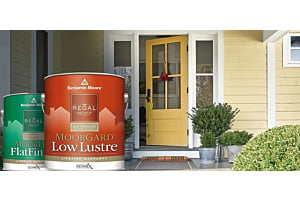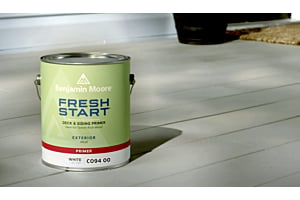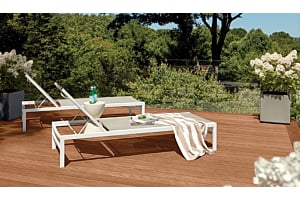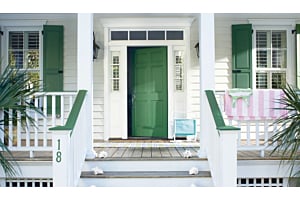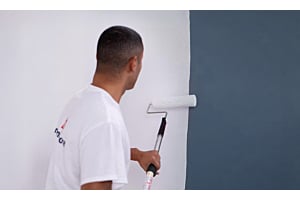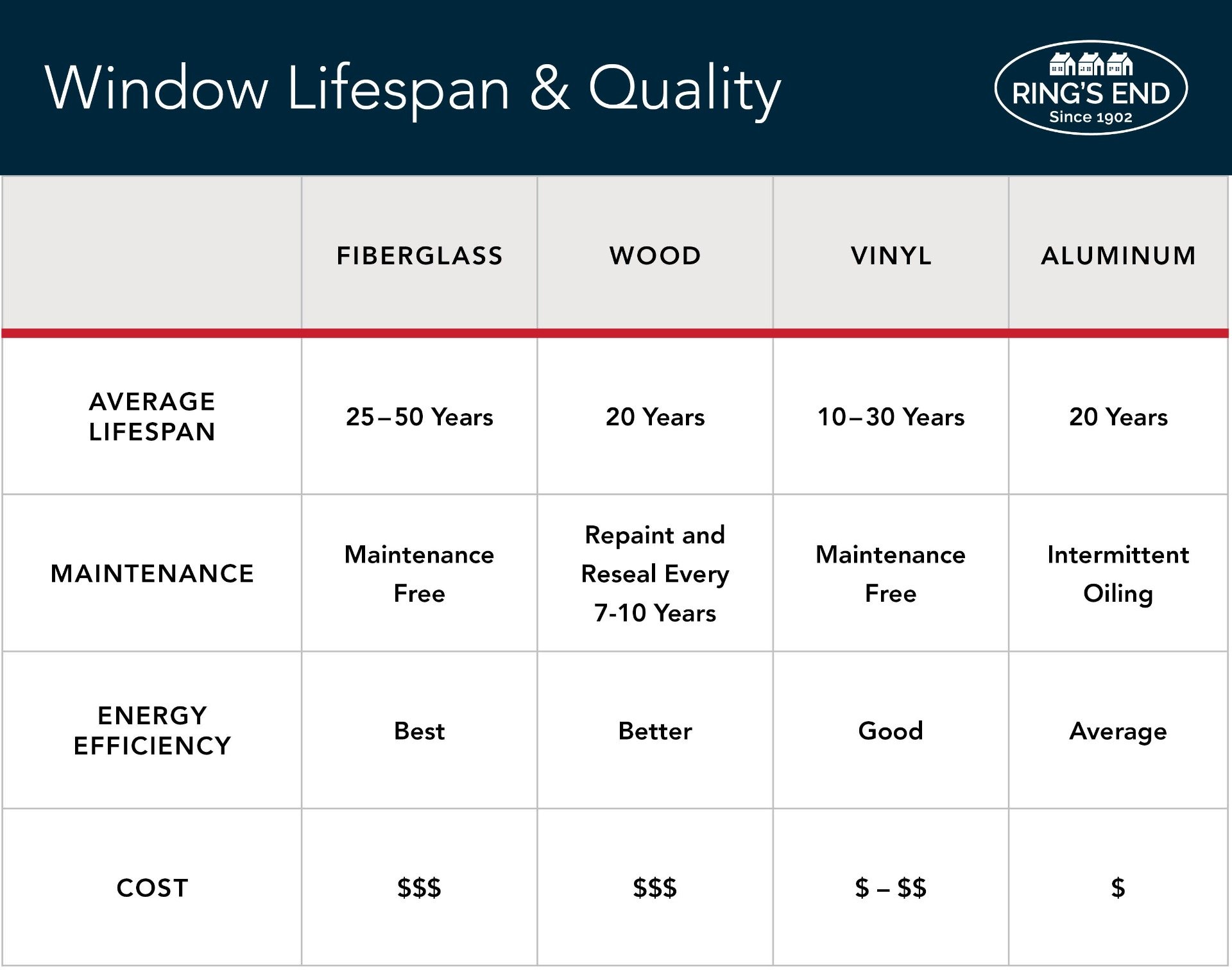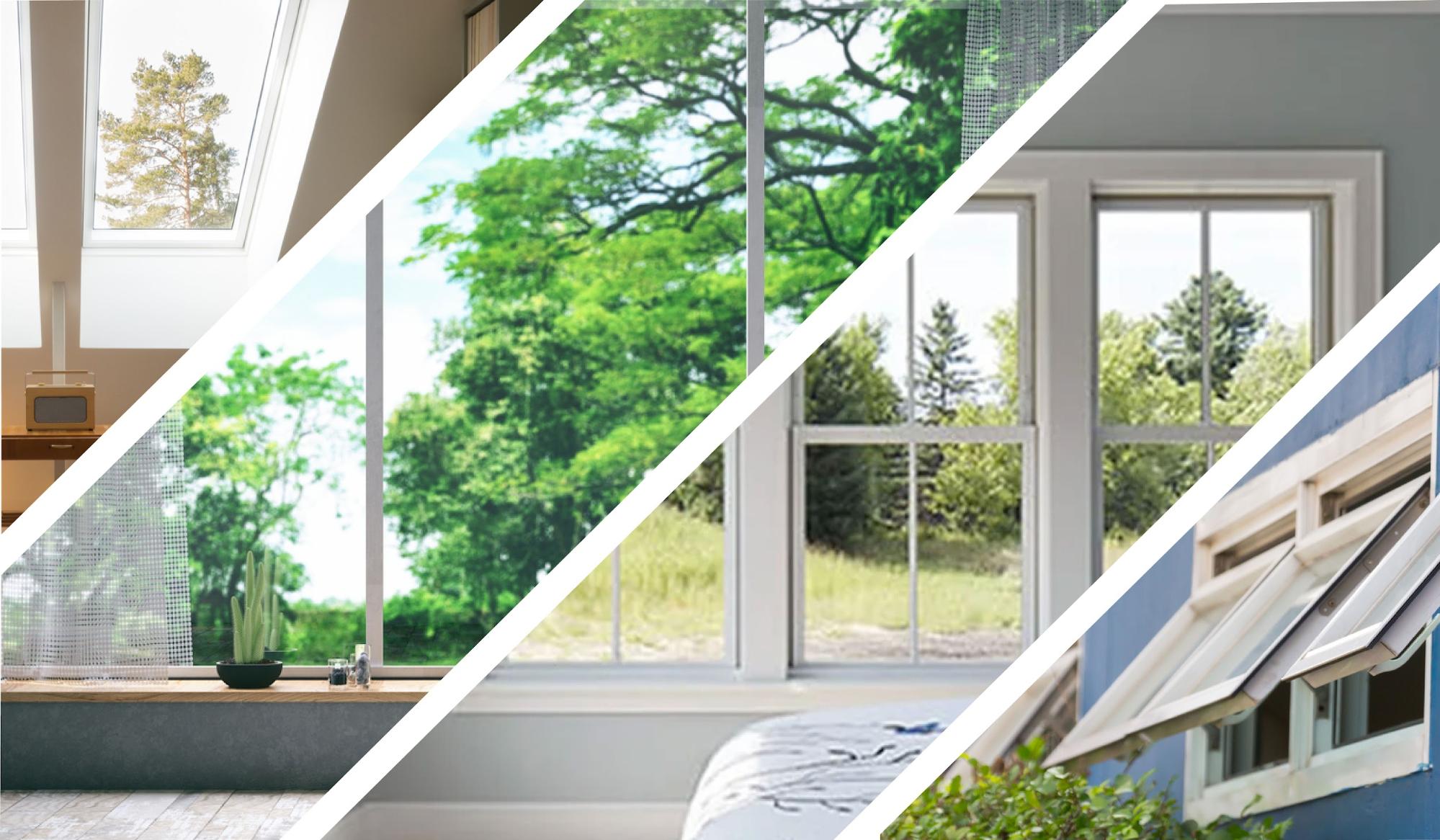
Whether you're building a new home or updating an existing one, selecting the right type of windows is one of the most important design decisions you'll make. While new windows can dramatically improve your home's curb appeal, their impact goes beyond aesthetics. Today's homeowners need windows that offer energy efficiency, easy operation, and lasting value. If you're planning to purchase new windows, this guide will help you understand the most popular types available and their unique benefits.
Let’s begin with some terminology. All residential windows belong to one of three categories:
- Fixed Windows: Windows that do not open, like a picture window:
- Operable Windows: Windows that open for ventilation; most residential window types are operable.
- Egress Windows: An operable window that’s large enough for a person to escape through in an emergency; usually required in bedrooms.
Be sure to check local building codes to make sure you choose the right windows for each room in your home. Once you’ve determined whether the new windows should be operable, it’s time to choose a style. Here are the most popular window types available today:
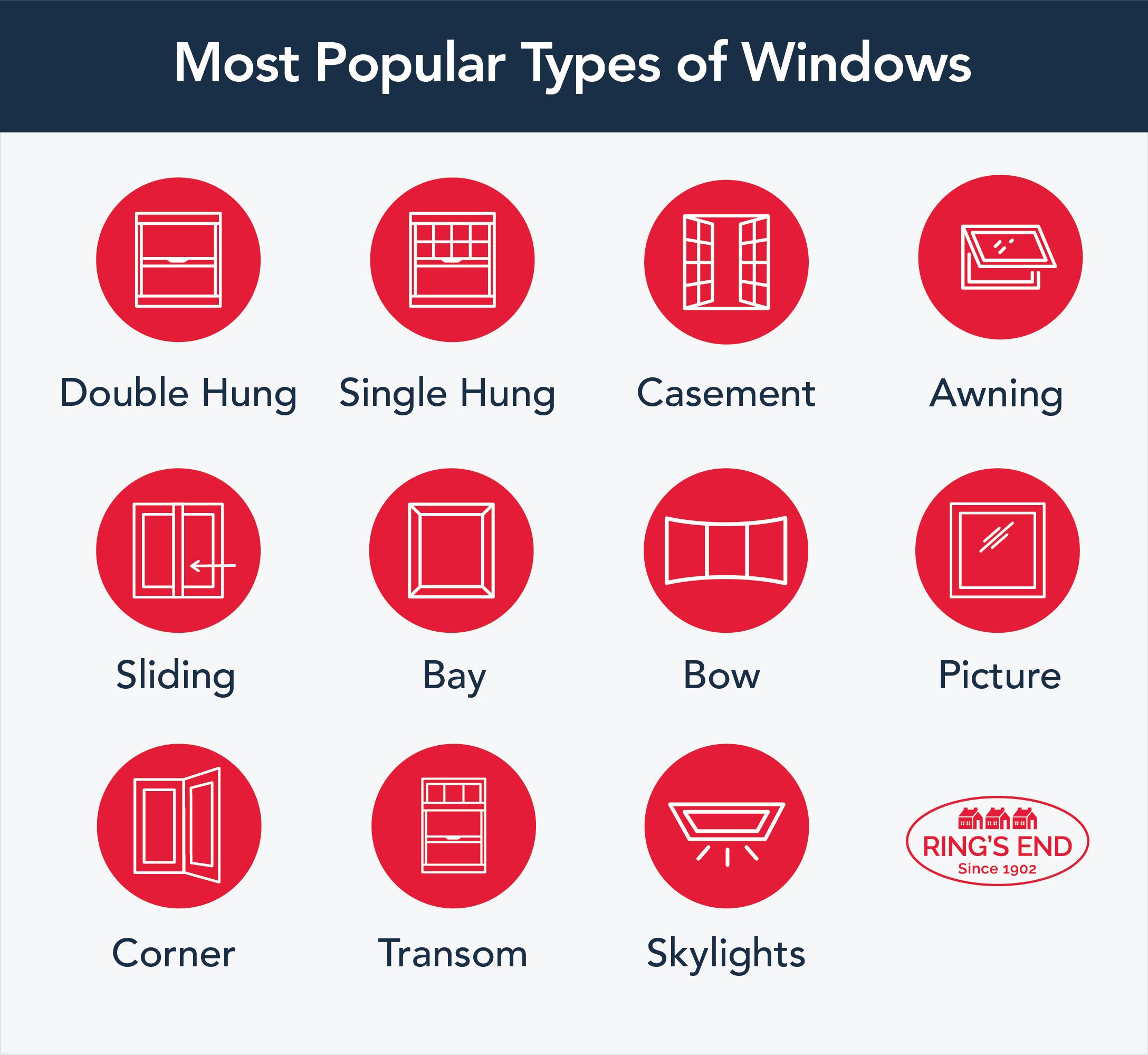
Most Popular Types of Windows
Double-Hung Windows
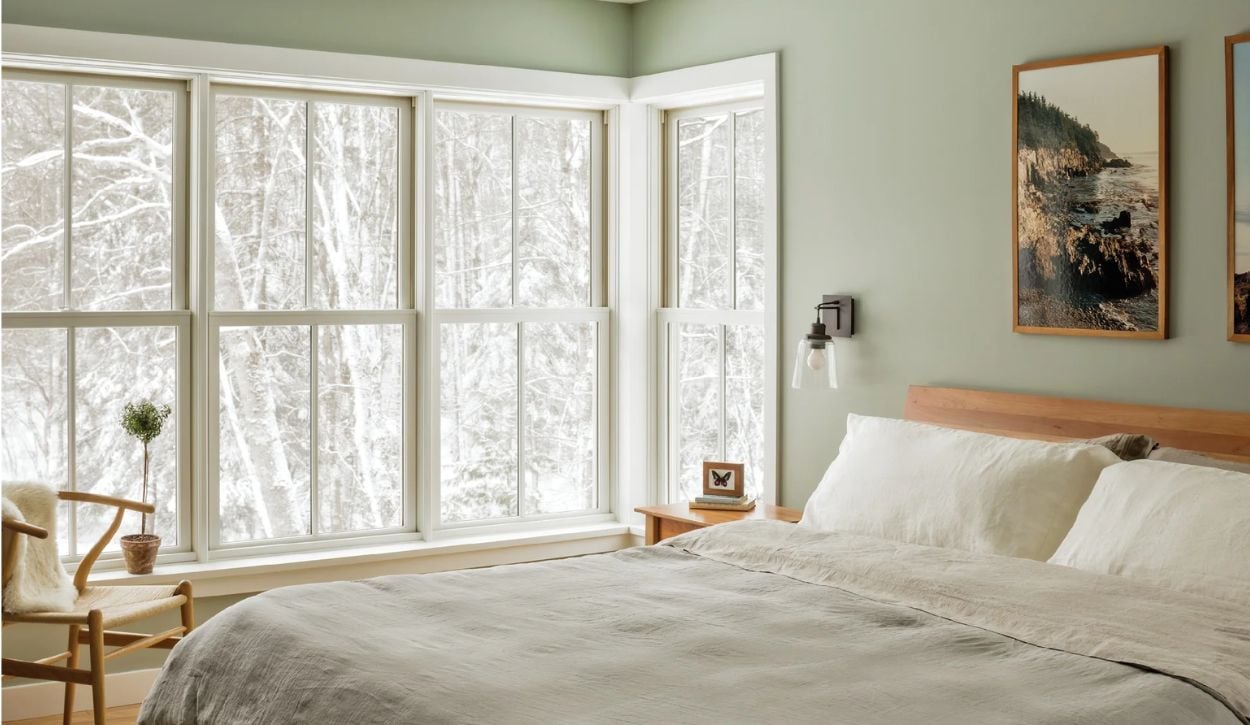
This common window style is popular on traditional homes. It’s divided into top and bottom sashes. The top sash slides down and the bottom sash slides up, so you can open all or part of the window to let fresh air in. They often have divided lites or window grids to replicate historic paned windows. Modern double-hung windows tilt inwards to make them easy to clean. Check out our guide to learn more about double-hung windows.
Single-Hung Windows
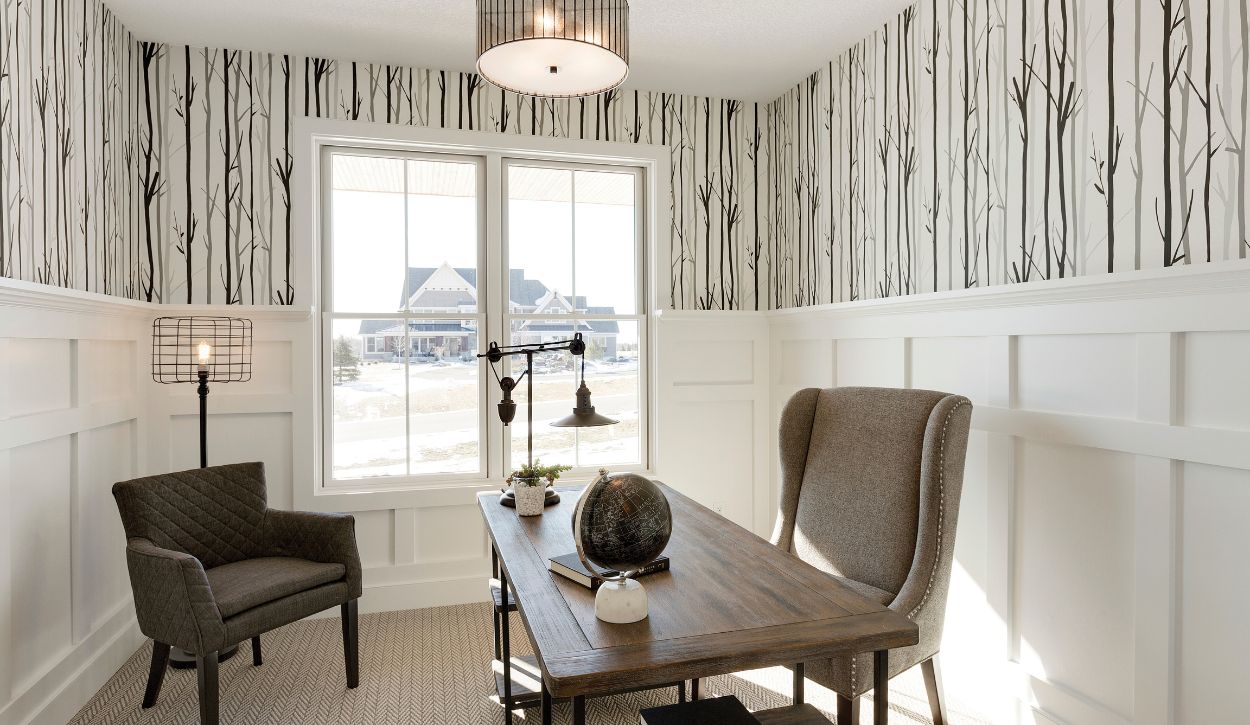
While they look almost exactly like double-hung windows, single-hung windows have a fixed top sash and a movable bottom sash that slides up and down. They are one of the most affordable window types, but they do not circulate the air as well as other windows.
Casement Windows
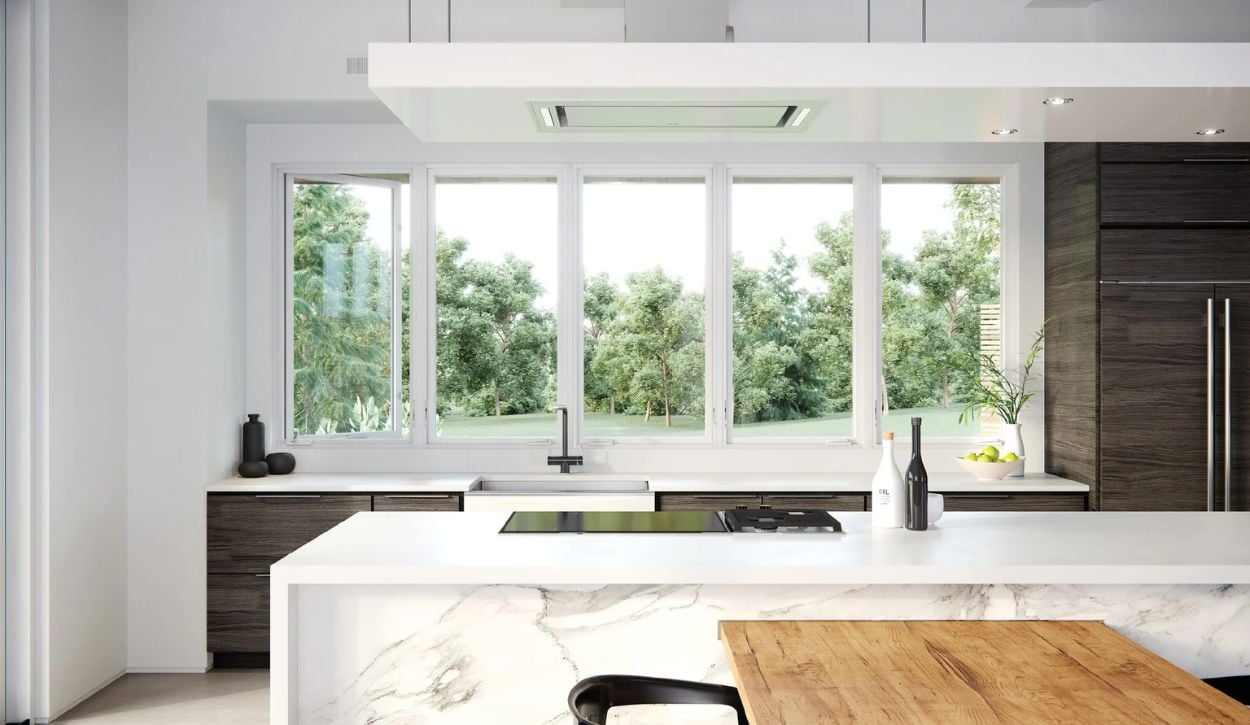
Casement windows have hinges on one side so they can swing open like a door. They provide great ventilation and are easy to operate by turning a crank. Because they form a tight seal they’re more energy-efficient than windows that slide. Casements are often found flanking a picture window; they’re also convenient for hard-to-reach spots in bathrooms and over the kitchen sink. Learn all about casement windows in our complete guide.
Awning Windows
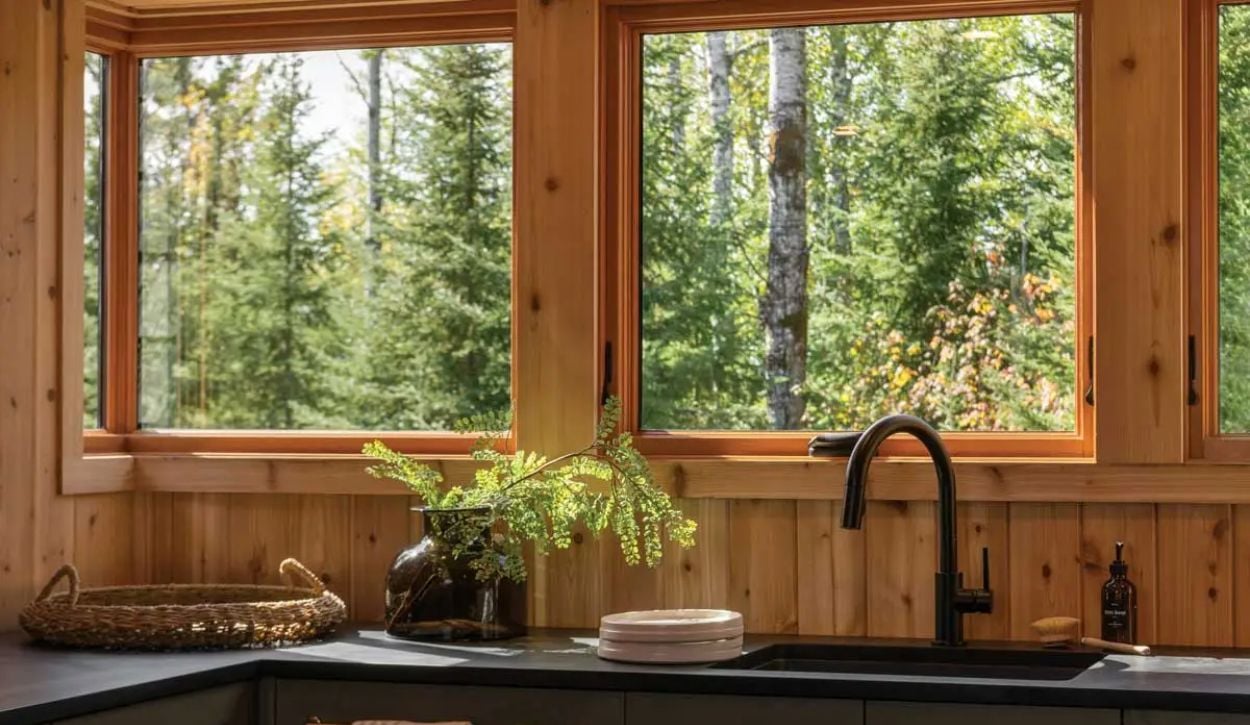
An awning window opens as you’d imagine – anchored by a hinge at the top and swinging outward at the bottom. They provide good ventilation and can be left open during light rain. Like casement windows they seal tightly for the best energy efficiency. Awning windows are also suitable for hard-to-reach areas like kitchens and places like basements where you want to keep pets or kids safely inside.
Awning windows are sometimes confused with hopper windows, though they operate in opposite ways. While awning windows are hinged at the top and open outward, hopper windows are hinged at the bottom and open inward. This design makes hopper windows particularly well-suited for basement installations and high-wall placements where their inward-opening operation provides easy access and excellent ventilation. Like awning windows, hopper windows seal tightly when closed and offer excellent energy efficiency.
Sliding Windows
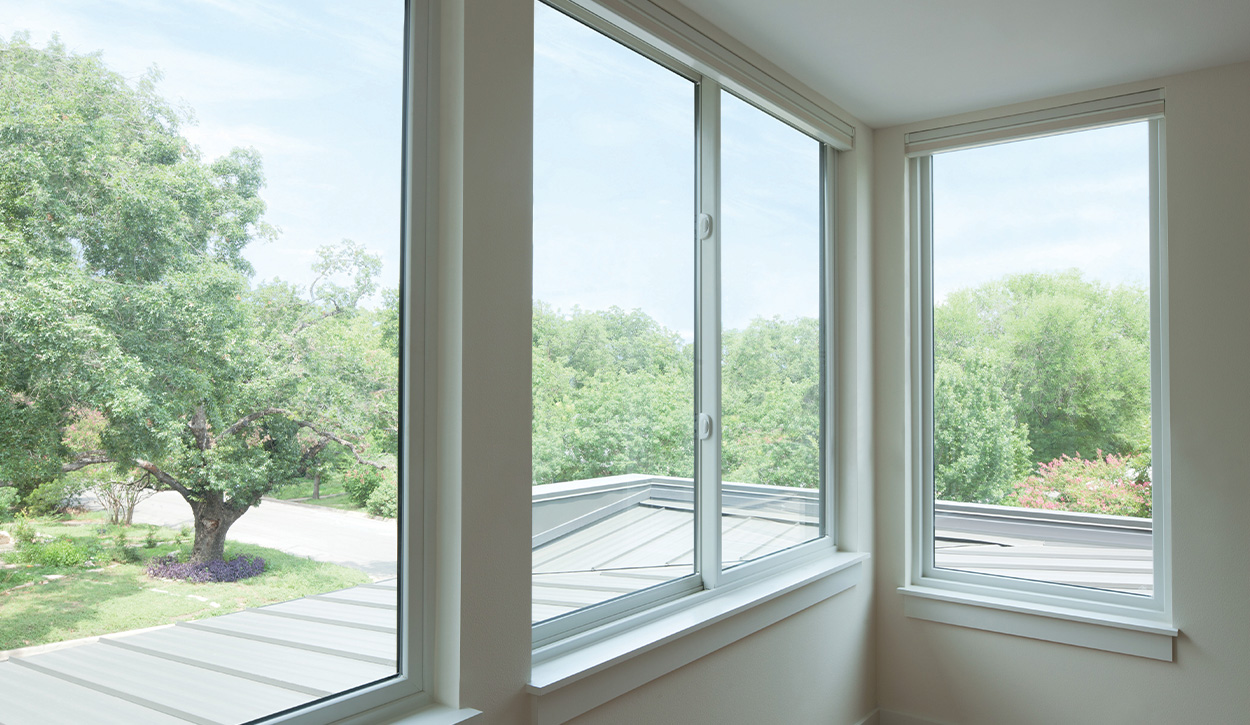
Gliding or slider windows have glazed panels that move from side to side along a track. They are easy to operate and can open wide to let plenty of fresh air in. Ideal for living rooms, sliding windows can be single, where one side moves, or double, where both sides can slide.
Bay Windows
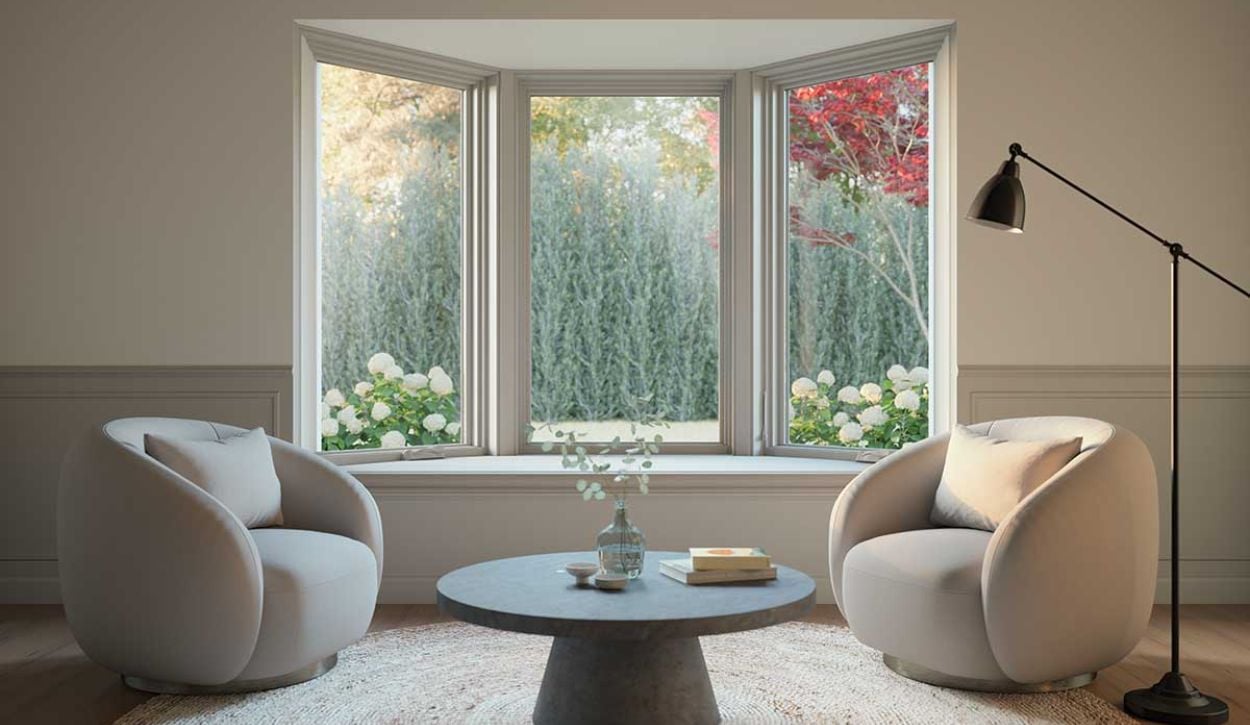
A bay window is a combination of three or more windows that extends out from the home’s exterior wall to create a bay or alcove. They usually have a large, fixed center window with angled windows on either side that are operable; typically the side windows are double-hung or casement windows. Bay windows provide a wider unobstructed view while adding some extra living space. Miniature bay windows that provide space for plants are known as garden windows.
Bow Windows
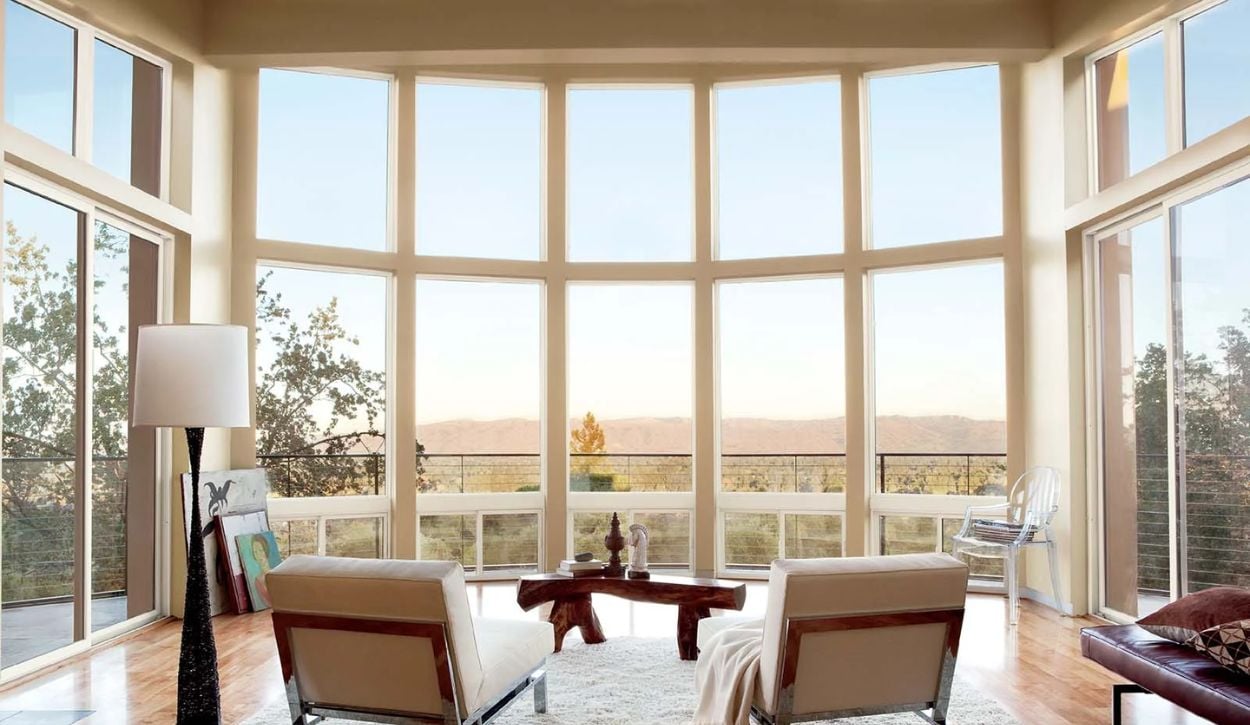
Like a bay window, a bow window extends outwards to create more interior space, but it forms an elegant curved shape. Bow windows usually combine four or more tall, narrow windows and often include operable casement windows. To learn more about different types of Bay and Bow windows, be sure to read our Buyer’s Guide.
Picture Windows
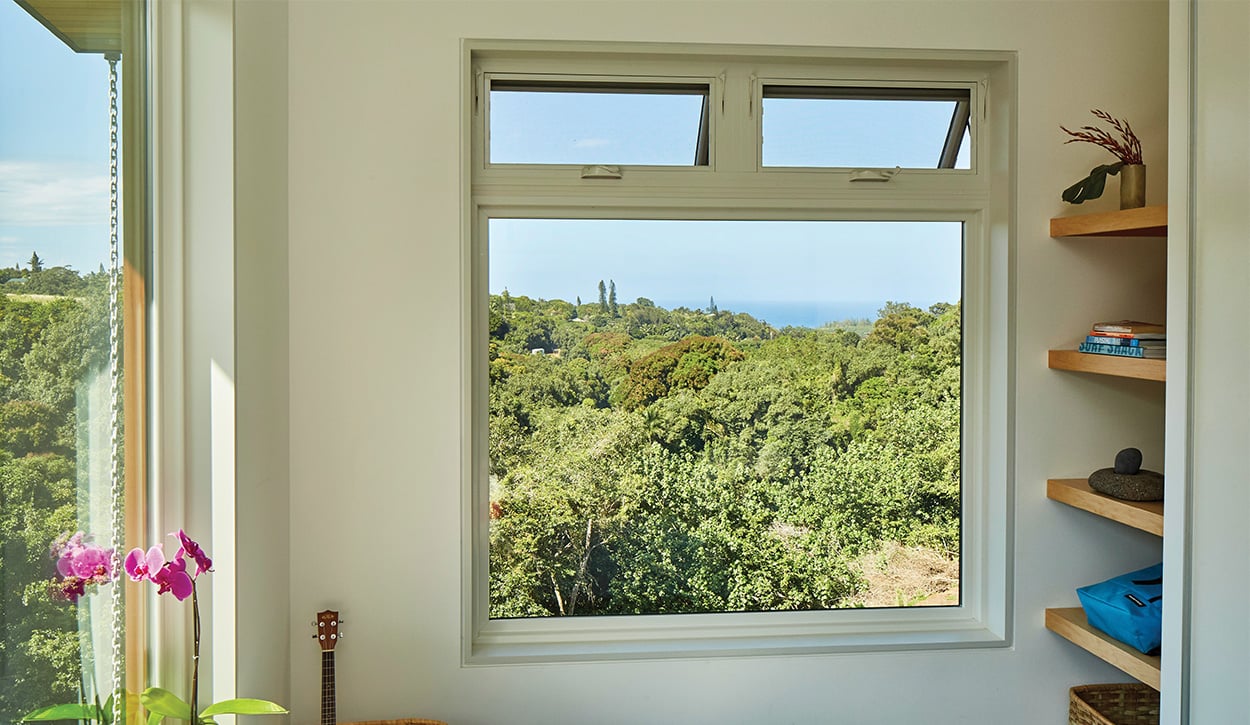
Picture windows are large, fixed windows that let in plenty of light and frame a view of the outdoors. They are often combined with windows that open as part of a window wall. Fixed windows that are not rectangular or square are called “picture specialty shape” windows. These glass panes are available in hundreds of geometric shapes, from polygon to triangle to round top. They are a common window style in mid-century modern homes and act as the focal point of a room.
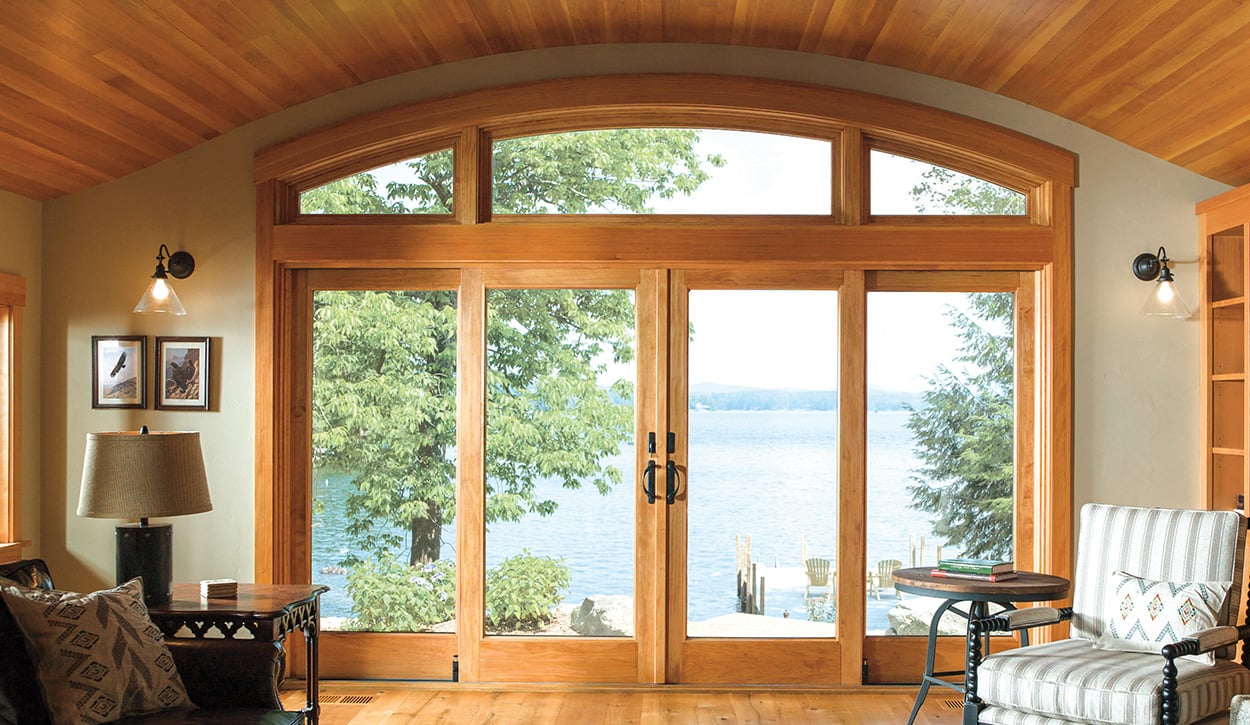
If you’re considering picture windows for your home, you’ll find plenty of helpful ideas in this article: Picture Window Ideas For Clear, Stunning Views.
Corner Windows
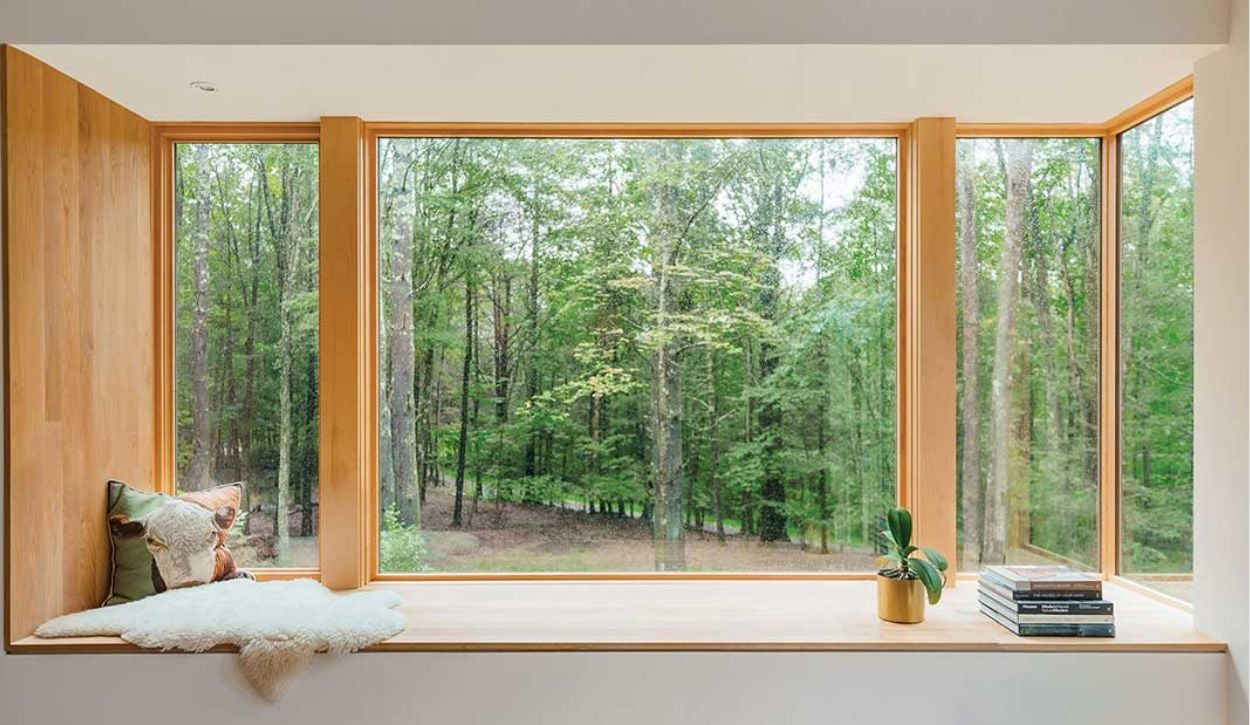
Just as the name implies, a corner window is made from two fixed windows that meet at a corner, replacing a wall with glass. Like picture windows, corner window designs expand the view and provide a clean, modern aesthetic. Because extra structural support is needed, corner windows are not an easy DIY home improvement.
Transom Windows
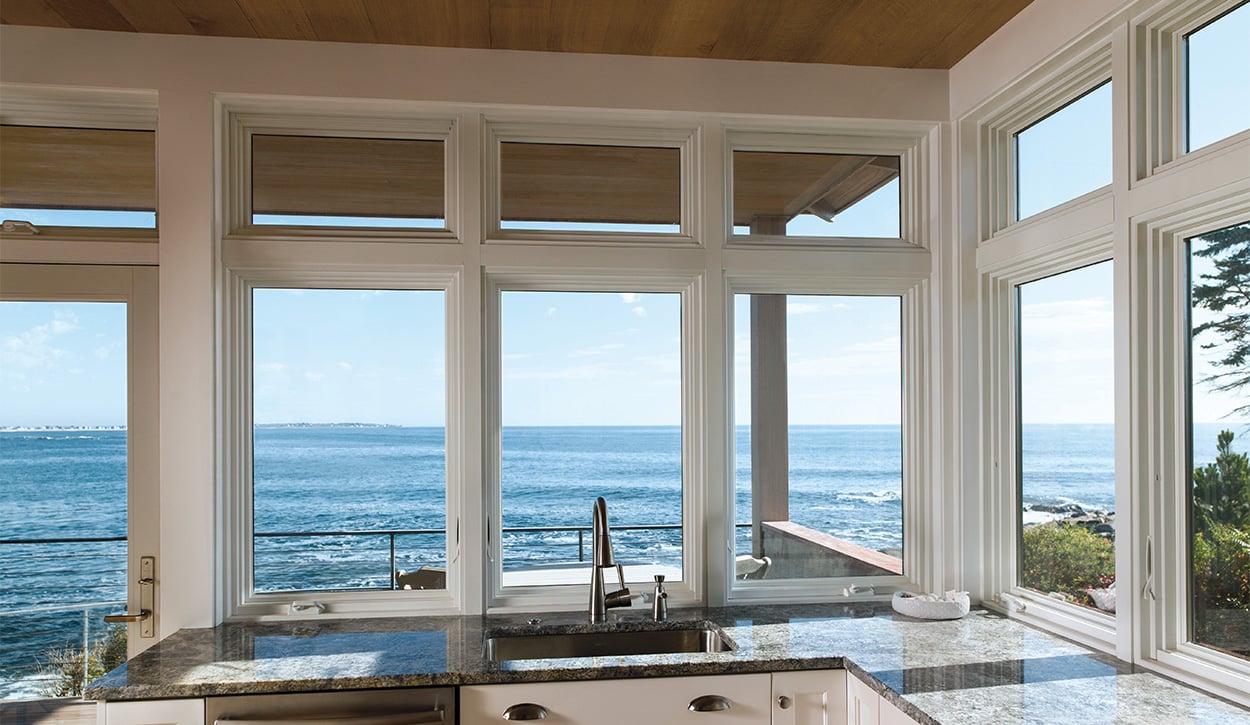
A transom window is a rectangular window that is installed directly above a door or a large window. Transom windows may be fixed or operable; in older homes, they were often used for ventilation and air circulation between rooms. Today, they are an easy way to increase the light in a home, but their high placement can contribute to heat gain, especially in summer months. This occurs because warm air naturally rises and collects near the ceiling, and transom windows, being placed high on the wall, are directly exposed to this warmer air. However, this same principle made operable transom windows historically useful for ventilation – when opened, they allowed the accumulated hot air to escape while drawing in cooler air through lower windows and doors.
Skylights
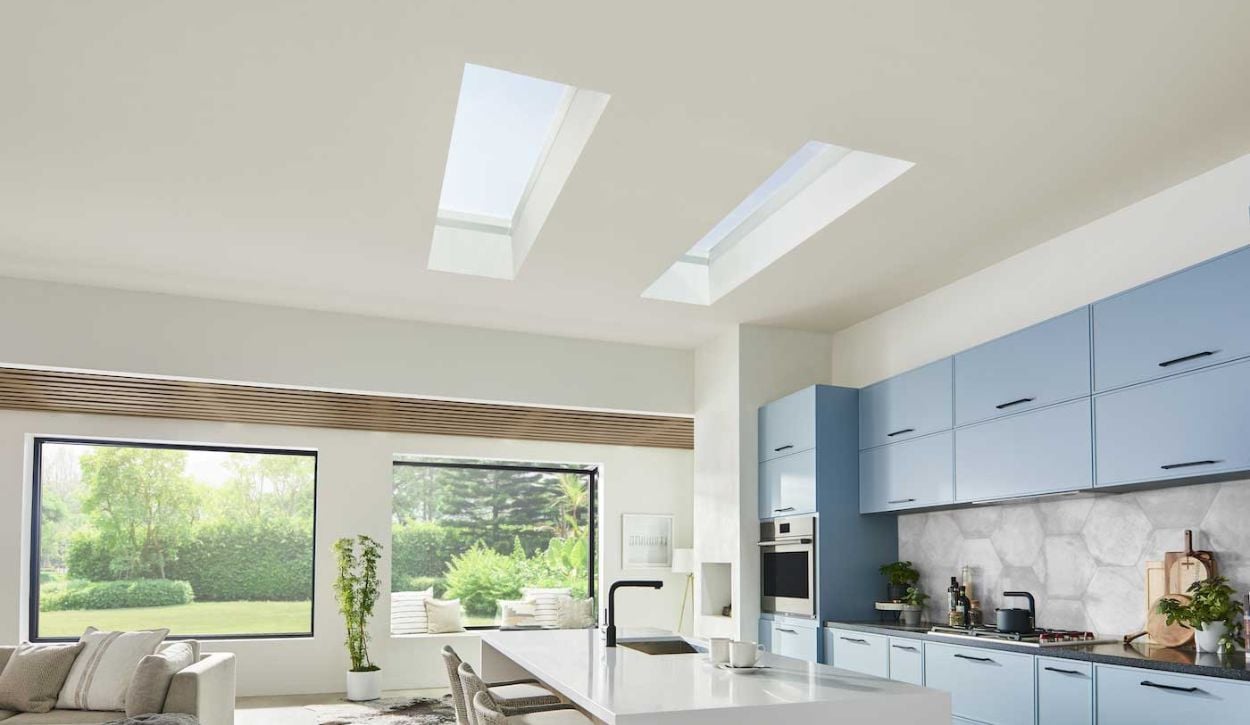
Skylights are actually windows installed in the roof of a building to provide natural light. They may be either fixed or operable; skylights that open are very efficient at letting hot air escape. Awaken skylights by Marvin actually open on all four sides for superior ventilation. These smart skylight windows also have built-in, tunable lighting to create organic light any time of day.
Choosing Replacement Windows
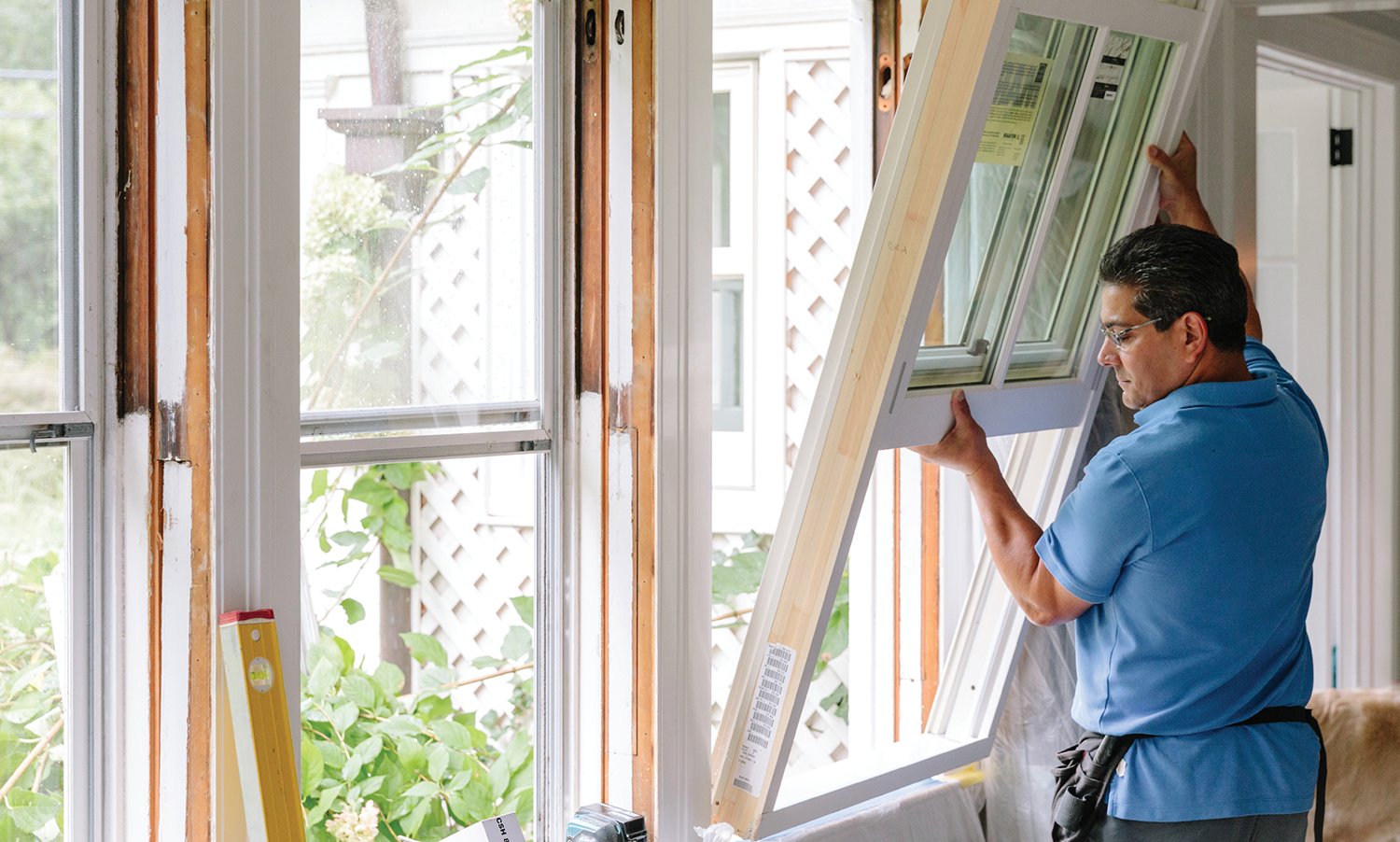
A replacement window is generally designed to replace an existing window without disturbing the surrounding frame, trim work or exterior siding. However, new construction replacement windows also offer you the option to install an entirely new type of window for an updated style or design.
Replacement windows are mass-produced to fit standard window openings, and custom sizes are also available. Popular frame materials include vinyl and fiberglass.
To learn how to choose replacement windows, read How to Choose Between New Construction vs. Replacement Windows.
Comparing Pros and Cons Between Window Types
Each type of window has unique features, so it’s essential to become familiar with how the different window types look and function. Choosing the best type of window for your home depends on several factors:
Energy Efficiency
Modern windows are designed for energy efficiency; consider the climate in your area and choose the best low-E glazing and frame material your budget allows. Efficient windows not only provide good insulation against the weather, they reduce energy loss for lower utility bills. Modern window glazing reflects the sun’s heat outwards in summer and retains it inside in winter.
Window Style
Consider the architectural style of your home and choose a window type that complements its design. For example, if your home is a classic Colonial with double hung windows, then casement windows would be inconsistent and look odd. Traditional home windows typically have grilles, but they are less popular on newer home styles. If you’re not sure, consult an architect or chat with our window experts at Ring’s End.
Ventilation
Different window types provide varying amounts of ventilation and air circulation. If you want to maximize airflow, consider windows that are designed to provide the most ventilation, such as casements, awning windows, and skylights. If you want to minimize air leakage, opt for windows with compression seals like casement, awning, or hopper windows – these styles press firmly against their frames when closed, creating a much tighter seal than sliding window types like double-hung or gliding windows.
Maintenance
Some window materials are more low maintenance than others. For example, wood windows need to be painted or stained every few years, while fiberglass windows never need painting. Tilt-in double hung windows and casement windows are the easiest window types to clean.
Security
Look for windows that provide good security features, such as sturdy locks, extra glazing and solid frames to help keep your home safe.
Budget
Different window types and materials come at different price points; to get the most out of your budget, choose longer-lasting window materials like fiberglass. If you choose high-quality windows, you’ll likely never have to replace them in your lifetime.
Lifespan
Prices can vary dramatically for different types of windows, and it may seem that a lower window cost upfront will be easier on the budget. However, the best windows are ones that won’t need replacing. Vinyl windows have the shortest lifespan at 10-20 years, and fiberglass windows can last 50 years. Even though fiberglass windows are more expensive, their lifespan makes them a more cost-effective choice over time.
What About Window Frames?
The frame material you choose is just as important as the window style itself. Window frames not only affect your home's appearance but also impact energy efficiency, maintenance requirements, and long-term costs. Here are the main types of window frames available today:
Vinyl Window Frames
Vinyl frames are among the most popular choices due to their affordability and low maintenance requirements. Made from PVC (polyvinyl chloride), these frames never need painting and resist moisture damage. While they provide good insulation, vinyl frames can fade over time and may not be as structurally strong as other materials. They typically last 10-20 years and come in a limited range of colors, usually white or beige.
Fiberglass Window Frames
Fiberglass offers superior durability and longevity, often lasting 50 years or more. These frames are incredibly stable, expanding and contracting minimally with temperature changes, which helps maintain their seal and energy efficiency. While more expensive initially, fiberglass frames can be painted, require minimal maintenance, and offer excellent structural strength. They're an ideal choice for large windows and harsh climates.
Wood Window Frames
Traditional wood frames remain popular for their natural beauty and classic appeal. They provide excellent insulation and can last for decades when properly maintained. However, wood frames require regular maintenance, including painting or staining every few years to prevent moisture damage. They're often chosen for historic homes and high-end construction where authenticity matters.
Aluminum Window Frames
Lightweight yet strong, aluminum frames are ideal for modern architectural styles and large window installations. While they're durable and require minimal maintenance, aluminum conducts heat and cold readily, making them less energy efficient unless equipped with thermal breaks. They're commonly used in commercial buildings and contemporary homes where slim profiles are desired.
Composite Window Frames
Composite frames combine materials—often wood fibers and plastic polymers—to create frames that offer the best of both worlds. They can provide the appearance of wood without the maintenance requirements, plus excellent insulation and durability. While typically more expensive than vinyl, they often last longer and provide better structural support.
Clad Windows
Clad windows feature a wood interior with a weather-resistant exterior material, usually aluminum or vinyl. This combination provides the traditional look of wood inside while offering low-maintenance protection from the elements outside. Though more expensive than single-material options, clad windows are popular in premium homes where both aesthetics and durability matter.
Shop Premium Windows at a Ring’s End Showroom
Are you renovating a home or considering replacement windows? You’ll love our collections of windows from premier manufacturers such as Marvin and Andersen. Our window and door experts make it easy! They’re ready to help you navigate the choices, set up an installation plan, and deliver your windows and doors safely and efficiently. Visit a Ring’s End showroom or schedule a free, in-home consultation with one of our window experts. Get started today!

